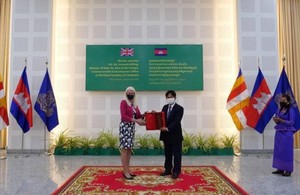Surface water management and sustainable drainage systems
News story
Report published. Assessment of how strategic surface water management informs Sustainable Drainage Systems (SuDS) delivery through the planning system.

Overview
Climate change and development activity is making surface water management a growing challenge. Sustainable drainage systems (SuDS) that are incorporated into developments can provide effective drainage as well as mitigating against new flood risk and providing an opportunity to address existing flood risk. Strategic scale studies and strategies can be used to inform planning policy requirements for SuDS.
The aim was to investigate the potential that strategic (catchment or sub-catchment) surface water management can contribute to inform the delivery of SuDS through the planning system, with the objective to:
-
review the effectiveness of current strategic surface water management plans in defining requirements for SuDS
-
describe advantages/disadvantages and barriers/opportunities for using strategic surface water management plans more effectively to define local planning authority SuDS requirements
-
suggest how barriers might be overcome
The research identified a number of areas of improvement and presented 30 conclusions for the government to consider.
Documents
The report can be accessed on Defra’s science search page.
Published 11 January 2022


